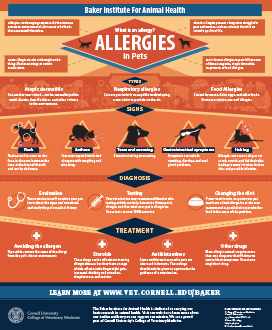How To Transition Dog To Daycare
How To Transition Dog To Daycare
Blog Article
Can Dog Day Care Cause Health Problem?
Doggy day care is a wonderful method to socialize your animal in a risk-free and controlled environment. Just like kids, canines at daycare can catch a selection of bacteria.
Several of these include: Canine distemper - an air-borne infection that attacks the respiratory and stomach systems with symptoms including vomiting and bloody looseness of the bowels. This is very infectious and can be deadly. Avoidance includes an effective injection, and trustworthy facilities normally need this vaccination.
Dog Distemper
Similar to kids who most likely to college, dogs at a pet dog park or childcare can obtain many different infectious conditions. These can include kennel cough, mange, ringworm, canine flu, distemper, rabies, and parvovirus (parvo).
While there are several diseases that trigger coughing, high temperature, anorexia nervosa or seizures, the mix of these signs and symptoms with the progression to a nerve system illness is one-of-a-kind to distemper. This can cause death, especially in young puppies and unvaccinated grown-up pets.
Distemper is spread out primarily by direct contact between canines, however can likewise be transferred with breathing secretions or by contact with shared food bowls, materials, devices and surface areas. The infection is shed in bodily secretions, and contaminated hands, feet, noses and mouths. Puppies and strays are most vulnerable to infection.
Dog Influenza
An extremely infectious viral condition that impacts pets (and in uncommon situations, felines). It is spread out by breathing secretions and polluted things, such as chains, playthings, food bowls and collars. It can also be moved from human hands to the mouth and nose of contaminated pets.
Signs and symptoms include coughing, sneezing, dripping nose and eyes, high temperature and anorexia nervosa. Extreme instances can lead to pneumonia.
Because this is a relatively new disease, many canines have no natural immunity against it and will end up being contaminated when initially subjected. Vaccinations are readily available. Trustworthy childcares and boarding centers will certainly need all pet dogs to be as much as day on their influenza, bordetella and parainfluenza injections. If your canine is experiencing signs of kennel cough, it's finest to keep them home from daycare until they are clear of the disease.
Canine Cough
Canine infectious tracheobronchitis, more commonly called kennel coughing, is a multifactorial condition triggered by a range of viruses and germs. Usually, impacted canines develop a dry hacking coughing that is intensified by workout or exhilaration and can last for weeks. A lot more serious situations can result in bronchopneumonia and require aggressive therapy consisting of hospitalization for IV-provided prescription antibiotics, oxygen therapy and fluids.
One of the most typical root cause of kennel cough is the bordetella bacterium, but infections can additionally be brought on by herpesvirus, parvovirus and adenovirus. It is transferred with droplets released when contaminated pets sneeze or cough, dog-to-dog get in touch with and sharing products such as food and water bowls or toys. Vaccination for this condition is readily available and is suggested for canines who spend time in boarding centers, brushing shops, doggie childcare and training courses in addition to those taking part in canine sports or team pet strolls.
Dog Parvovirus
Canine parvovirus (CPV) is the most unsafe condition that impacts unvaccinated canines. The virus strikes the intestinal tract, resulting in throwing up and serious diarrhea. It additionally infects the bone marrow, leading to a decrease in safety white blood cells. The weakened body immune system enables the infection to spread rapidly. It is particularly fatal for puppies and canines of young age, but it can also attack adult dogs and various other canids like prairie wolves and foxes.
This very transmittable ailment is check out this site spread through direct contact with an infected dog, the contaminated atmosphere such as kennels and food bowls, and even the hands and garments of people dealing with the canine. Vaccination for this health problem works, and reputable daycare and boarding facilities will certainly need it. The kennel coughing vaccination is often suggested together with the parvovirus vaccination.
Pooch Parasites
Parasites may be interior (worms) or outside (fleas, ticks). Digestive bloodsuckers can create a selection of problems, but they are especially significant in young pups. For instance, hookworms attach to the intestinal wall surface and suck blood, bring about anemia in young puppies. Young puppies may be contaminated with these bloodsuckers by eating feces-contaminated dirt or with the mother's milk during nursing. Pups may also become infected with whipworms, which are single-celled bloodsuckers that attach to the intestinal tract and decrease nutrient absorption, causing persistent watery diarrhea.
Pets can likewise be infected with tapeworms, heartworms, roundworms and giardia. If you see worms in your canine's feces, a visit to your vet is recommended for medical diagnosis and treatment. Bloodsucker infections are preventable with month-to-month spot-on treatments and normal cleansing of food, water and feces bowls.